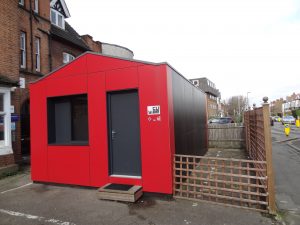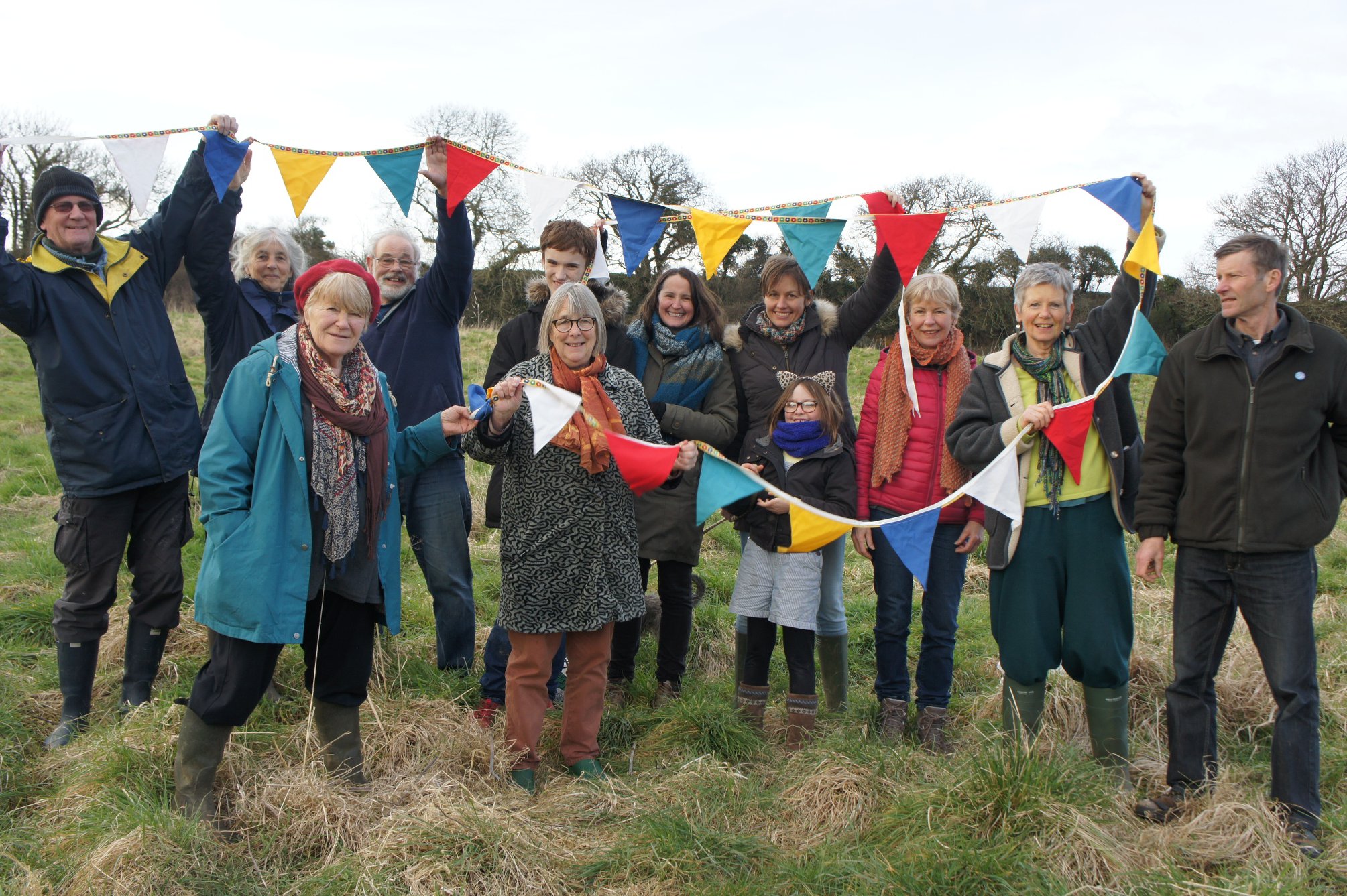Alternative housing, be that utopian schemes like co-housing or technological fixes like off-site construction, increases the mix of options on offer in London’s constrained housing market. One key lesson that emerged from our site visit to three alternative housing schemes in Lewisham was the vital role an ‘enabling local authority’ might play in overcoming the barriers to alternative housing provision. An earlier multi-stakeholder workshop had also revealed a lack of knowledge or institutional memory, even amongst the most supportive local authorities (LAs), about the process of developing some alternative housing models and how best to support this development. Wanting to explore these issues further, on 29 April we brought together a group of LA officers, alternative lenders and stakeholders from the non-profit sector to discuss the role of local authorities in alternative housing provision.
The roundtable discussion was centred on three main themes:
- What experience did LAs have with alternative housing in their borough, and what ‘best practices’ could they share from that experience?
- What institutional memory and knowledge existed about supporting alternative housing provision in their authority?
- How could alternative housing models be made more mainstream in London?
The four LAs represented at the roundtable were either active seekers or willing recipients of alternative housing schemes. Those who were proactive in their approach felt empowered to be leaders – there was typically political support and vision in the borough and frequently this translated into the inclusion of alternative housing in the local housing strategy. Authorities who were less active in this regard were still happy to support the development of some alternative supply but were more likely to wait for interested groups to come to them.
In both cases one barrier to making alternative models more mainstream lay in the fact that frequently community groups who came forward with schemes were not always able to ‘sell’ the idea to councils. They were frequently inward looking and did not understand the multiple pressures and criteria by which planners had to judge development – for example in terms of affordability, housing nominations and space standards. There was strong agreement that helping community groups become more commercially minded and better able to illustrate the relevance of their project to the council would be a useful step forward. In fact, market awareness and an ability to map a product’s attributes onto a council’s priorities was one of the chief reasons providers like Pocket and Y:Cube were seen to be more successful in London.
Creating communities of practice and building institutional memory

Are boroughs teeming with long memories and rich communities of practice around alternative housing provision? For the most part the answer is no. Housing strategy and enabling functions within Councils are tending to downsize and where once boroughs may have employed a range of technical specialists, today LA officers are increasingly generalists who are asked to take on an ever-increasing and diversifying workload. Again attendees brought us back to the idea that vision and leadership were core to getting projects off the ground. The sheer luck involved in assembling a team with dynamism and drive who were equally endowed with a receptive environment in which to work was not lost on our participants.
However, more than creating institutional memory, our attendees talked about the importance of cross borough cooperation amongst officers. Understanding what your neighbours are doing and how they are carrying out complex negotiations can prove to be the difference between a project taking several months to get approval and one taking several years. One excellent example comes from housing models like Pocket where the cost of the property is 20% below market rate but space standards are as well. Alternatives like these which challenge the status quo can prove complicated for LA teams wrestling with affordability and viability metrics. A better level of inter-borough communication could help individual authorities avoid continually re-inventing the wheel by opening channels to share strategies and best practices. Indeed, it was here where some attendees noted the value of long-term relationships they had built up by working in a variety of organisations across London; increasing the opportunities for more of these networks and relationships to form—particularly around specific policy areas like alternative housing—was a popular idea, and one that has proven successful in other countries where alternative models are already more mainstream.
Making it more mainstream and notes of caution
Everyone agreed that it is the first scheme of any alternative typology that always proves the hardest and that this is where institutional memory and cross-border networks become vital. There was also agreement that in a fast changing land market those schemes that came forward with the best worked out planning case tended to go through easiest. This means that frequently social enterprises that are led by a range of community groups remain ‘fringe’ where models like Pocket and Y:Cube that are managed singly have an advantage. In addition, in a world where output and numbers are king, and where LAs are facing increasing pressures to address ‘the supply crisis’, small bespoke schemes may prove less attractive.

There was also a note of caution amongst our guests that in a desperate market we might be pursuing desperate measures that produce housing that may prove hard to sell on or that will not meet future need in London. Whilst a good case can be made for some of the alternative schemes there was a fear that these still remained a high-risk choice for both councils and lenders. In this way some chose to see models like Y:Cube as a bold experiment that could be employed to provide temporary housing thus reducing costs while providing an exciting alternative to the status quo. Once these prove successful beyond their demonstrator stage, they could then be incorporated more easily into LA plans and become more appealing to traditional lenders.
Take aways for practice

It is always hard to distil a conversation like the one we had into a few neat points that can be held up as core to the discussion. In doing so we risk simplifying and ignoring complexities. However, from our discussion one can definitely see a need for more communication across boroughs about alternative housing provision. While this does not need to be formal or require a new group or body, it does need officers to reflectively consider the connections they have and actively make use of and grow these. It also seemed apparent that more commercially minded alternative schemes will always have an advantage as they build up knowledge of how to ‘do’ their particular model of housing in multiple boroughs over time. The one off housing cooperative simply does not have this advantage, as by nature it will always be their first time. Those that have the backing of organisations like ‘Radical Roots’, for example, are more likely to succeed. Here one could argue that a community of practice might best be developed here to help bring these disparate groups, and those who have worked with them in LAs, together to give them comparative advantage. Finally, leadership, a willingness to innovate and be exposed to some risk, vision and continued drive are all integral to successful innovative programmes.





1 Comments